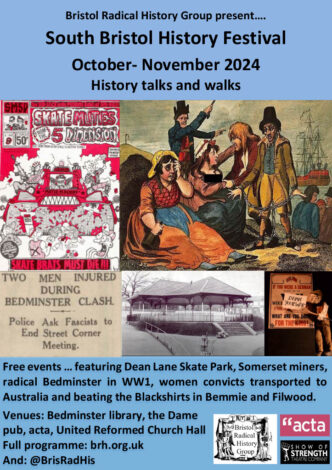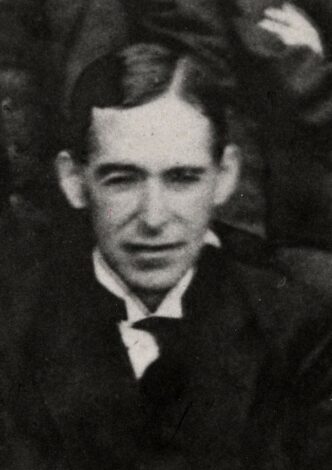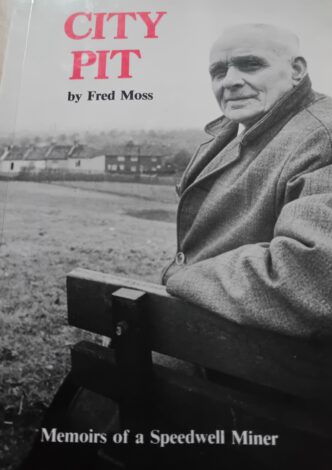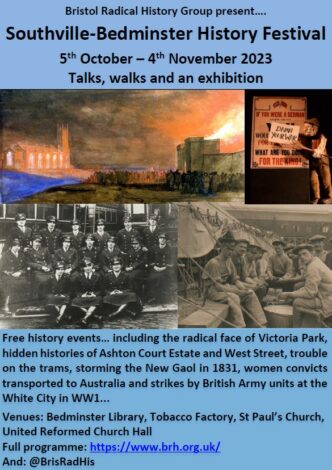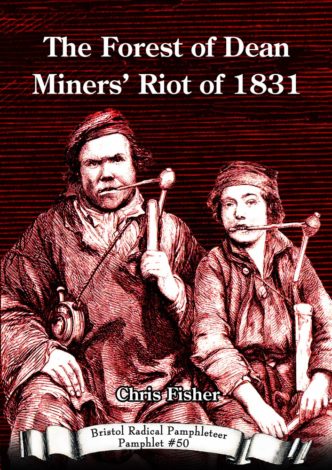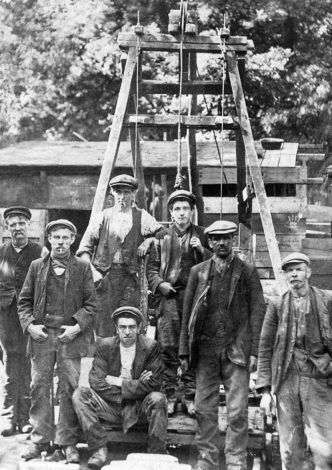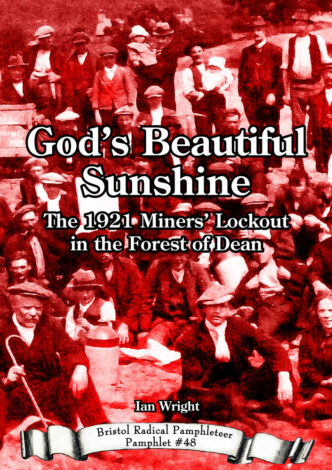Dave's talk is intended to be an introduction to the Somerset Coalfield, one of the West Country's best-kept historical secrets. Whilst 'Killing yourself to keep yourself' will cover geography, geology, land owners, mine owners, mining techniques, accidents and disasters, the talk will focus on the miners' trade union, the Somerset Miners Association (SMA). It will look at some of the battles with vicious employers the SMA engaged in, to gain recognition, respect, and improvements to wages and […]
Ever wondered why there’s a pub called the Jolly Colliers on West Street? Do you know that the first Bristol Co-op was founded at 88 West Street by miners—who also set up a ‘Gospel tent’ and school on the site of what’s now United Reformed Church? The Somerset coalfields included the Malago and Argus pits, both of which were located on West Street, more or less where Tesco and Airpoint are now. The West St BS3 Neighbourhood Group is continuing its local history project supported by BS3 charity […]
From the website: "The South Gloucestershire Mines Research Group (SGMRG) was set up by local people to understand, record and, where appropriate, preserve the remains of what was once an extensive industry for the present community and future generations. SGMRG is a voluntary organisation that relies on grants and donations from local people. Our membership is made up of archaeologists, surveyors, historians, engineers, cavers and those simply interested in finding more about what lies under […]
This 70-page booklet, City Pit: memoirs of a Speedwell miner, tells the story of Fred Moss who lived and worked in east Bristol as a collier in several different pits. Fred starts his story as a boy, telling of a strong community, living difficult hard lives but with sturdy solidarity in the face of adversity. He describes the benefits of mutual aid and respect in an area dominated by mining and associated trades, in a community which has largely passed and is now a historical memory. He […]
In September 1886, an explosion deep underground at the Dean Lane Colliery led to the deaths of 10 miners and life changing injuries to many others. Tony Dyer will explain the mistakes that led up to the disaster, how and why the explosion happened, the repercussions both for the miners and the local mining industry, and how it impacted safety regulations in the Bedminster mines immediately following the explosion. A descendent of Bedminster coalminers himself, Tony will look at how the […]
In 1921, in response to a severe depression in the coal trade, colliery owners, supported by the government, slashed labour costs. Refusing to accept this cut in wages, a million British miners, including many war veterans, a were locked out of their pits. The consequences for the 6,000 Forest of Dean miners, their families and the whole community, was brutal. However, the miners fought a determined battle for an alternative which included public ownership of the mines with decent pay and […]
The Forest of Dean uprising of 1831 received scant attention from historians before 1975 when Chris Fisher started researching the subject as part of his MA in history studies at the University of Warwick. His MA dissertation was the first thorough study of the riot and is up to now unpublished. BRHG decided to publish it in its original form as we believe that it provides an alternative and critical insight into the events surrounding 1831. Fisher argues that the Forest of Dean Riot of […]
Recent years have seen the growth of sub-contracting, piece work, self-employment, daywork, zero-hour contracts, minimum wages and the use of agencies in the never-ending attempt by capital to reduce the cost of labour. This is an account of the use of sub-contracting in the mining industry in the Forest of Dean 1922 – 1938. It examines the impacts of the system on workforce cohesion and solidarity as well as the extent to which it succeeded in increasing the rate of exploitation of the […]
In 1921, in response to a severe depression in the coal trade, colliery owners, supported by the government, slashed labour costs. Refusing to accept this cut in wages, a million British miners, including many war veterans, were locked out of their pits. The consequences for the 6,000 Forest of Dean miners, their families and the whole community, was brutal. However, the miners fought a determined battle for an alternative which included public ownership of the mines with decent pay and […]
